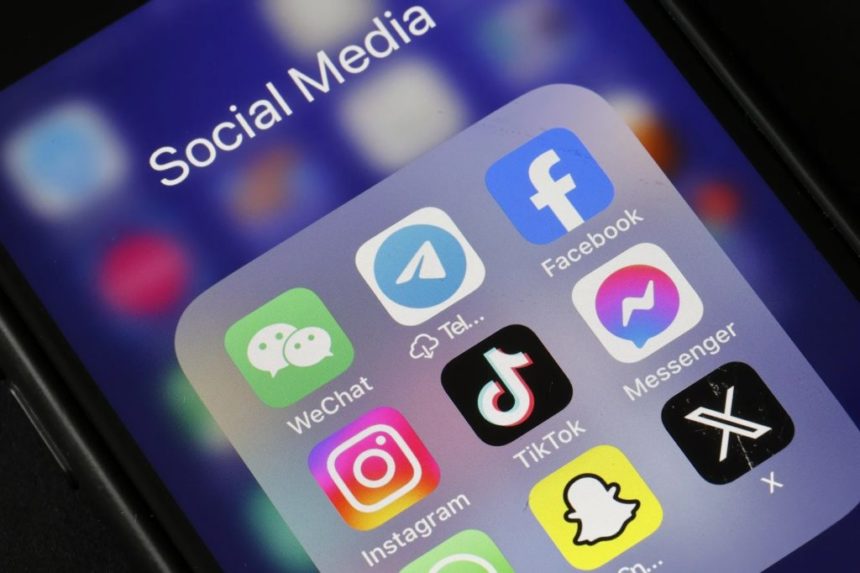Many factors play a role in the spread of disinformation on the internet but not all can work behind the scenes and effectively stem the surge. In this context, big tech platforms sit at the heart of the problem and the solution. From Facebook’s sprawling misinformation networks to X’s struggles with content moderation, these platforms have become fertile ground for harmful narratives that distort public discourse, influence elections, and incite violence.
Despite lofty promises and billions spent on content moderation, the cracks are glaring: weak policy enforcement, algorithmic amplification of falsehoods, and a business model that profits from outrage. As disinformation evolves into a weapon of state and non-state actors, the question remains — are tech giants willing to fight the monster they helped create?
The World Economic Forum (WEF), through its 2024 global risks report, said that as technological risks remain, accurate information will come under pressure. Emerging as the most severe global risk anticipated over the next two years, foreign and domestic actors are believed to leverage misinformation and disinformation to further widen societal and political divides, especially by undermining the legitimacy of elected governments.
Beyond elections, perceptions of reality are likely also to become more polarised, infiltrating the public discourse on issues ranging from public health to social justice, the report said. However, as truth is undermined, domestic propaganda and censorship risks will also rise. In response to mis/disinformation, governments could be increasingly empowered to control information based on what they deem “true”. Freedoms relating to the internet and its self-regulation, press, and access to wider sources of accurate information that are already in decline risk descending into broader repression of information flow across a wider set of countries.
THE TECH INDUSTRY IN NIGERIA
A recent survey named Nigeria as one of the top 10 countries in the world where false information is posing the biggest threat.
With over 163 million users, Nigeria’s tech industry has grown exponentially over the past decade, positioning itself as a leading hub for technological innovation in Africa. This rapid development is largely owed to a vibrant entrepreneurial ecosystem, significant investments, and a youthful, tech-savvy population. However, poor regulatory frameworks stand to stifle growth, limit investment, and hinder the industry’s potential.
Experts believe the proliferation of deepfakes and offensive content reveals a severe lack of accountability within big tech companies. Oftentimes, tech companies do little about the spread of harmful content under the claim of limited control over user-generated content owing to “safe harbour protections”. In other instances, the need to rake in profit overrides the urgency of a sanitised digital ecosystem.
Khadijah El-Usman, senior programmes officer, Paradigm Initiative, told TheCable that the reverse should be the case. User safety in all contexts ought to be prioritised over profit, she added.
“Most big tech companies have established business models that do make them money and will continue to make them money, so they must draw the line at user safety where profit-seeking erodes user safety and could potentially break the law, not just the law but inching towards international best practices, human rights standards and the UNDP’s business and human rights standards,” El-Usman said.
So, how can tech companies prioritise user safety?
El-Usman said it will come from transparency – having transparency reports and ensuring user safety is built in by design and not an afterthought. This also includes factors such as data protection and ensuring content moderators are compensated enough for the tedious work of sanitising social media. In Kenya, over 140 Facebook content moderators have been diagnosed with severe post-traumatic stress disorder caused by exposure to graphic social media content including murders, suicides, child sexual abuse, and terrorism. The moderators from Kenya and other African countries were tasked from 2019 to 2023 with checking posts emanating from Africa and in their languages but were paid eight times less than their counterparts in the US, according to the claim documents.
Earlier this year, Kashifu Inuwa, director-general of the National Information Technology Development Agency (NITDA), said there is a need for content moderation in the Nigerian digital space in line with global practices to ensure the safety of users.
Inuwa said the move would curb mis/disinformation and create a safer cyberspace. In 2022, NITDA introduced the ‘code of practice for interactive computer service platforms’ to regulate digital content in Nigeria. Despite criticism, the code remains in place, though enforcement is unclear. It requires platforms, including social media, to act swiftly on notices of unlawful content, acknowledge complaints, and remove such content within 24 hours. However, government regulation, especially in Africa, has often bordered on a near ban. El-Usman said the responsibility of regulation needs to move beyond government.
“We should be encouraging more self-regulation from individuals and communities, that doesn’t necessarily rely on the heavy-handedness of government,” she said.
“Communities should be able to have the capacity to debunk information. We must also continue to engage platforms to ensure their accountability, for the longest time focus has been on government accountability.
“If there must be government regulation then it must be in two folds: it must be the carrot and the stick, it must show the prioritisation of individuals, of vulnerable groups, it must show their protection and must be able to punish perpetrators, there must be a balanced regulation.”
WHY IT IS IMPORTANT TO FIGHT DISINFORMATION
El-Usman said disinformation undermines digital rights because of the way it erodes trust in the information ecosystem.
Naturally, this provides justification for censorship and surveillance but the tech expert does not believe these are effective solutions.
“One is digital literacy,” she said while adding that “people must be taught and must learn to navigate the responsible use of digital technologies”.
Gatefield, a public strategy and media group, has embarked on a campaign to tackle this challenge head-on.
Maryam Ahmad, Gatefield’s senior analyst, policy and governance advocacy practice, told TheCable the campaign was born out of the need to reverse the often negative emotions of fear, confusion, and division in communities that have become targets of disinformation.
“Disinformation in Nigeria doesn’t just come from news outlets, it often originates from personal accounts on social media. Many people unknowingly share false claims without verifying their accuracy, and these claims quickly gain traction online. This is particularly damaging for politics, religion, or health issues, where even small pieces of false information can have widespread negative effects,” Ahmad said.
“By encouraging Nigerians to adopt a more critical mindset when consuming and sharing information, the campaign aims to create a cultural shift. The message is simple but powerful: don’t just forward information fact-check it first. This movement inspires people to ask questions, seek out the truth, and think carefully before sharing anything online.
“What sets #FWDWithFacts apart is how it’s being championed by celebrities, cultural leaders, and journalists, whose influence helps the message reach diverse audiences. These trusted voices use storytelling as a key tool to engage Nigerians, sharing real-life examples of the damage caused by misinformation and the power of informed decision-making. Through videos, social media posts, and live events, these influencers vividly show how critical thinking and fact-checking can protect communities from harm.
“The campaign also prioritizes reaching vulnerable groups who are most affected by politically charged falsehoods. By weaving emotional and relatable stories into its messaging, #FWDWithFacts not only educates but also empowers people to take action. The goal is not just to spread awareness but to ignite public demand for better accountability—both from individuals and from platforms where misinformation spreads.”
Ahmad said the campaign’s core is about inspiring Nigerians to become active participants in the fight against disinformation and to strengthen information resilience.
This is especially critical at a time when tech magnates wield significant influence over public perception. Their personal biases can often shape the views of millions, making it harder for users to discern between real and fake content.





